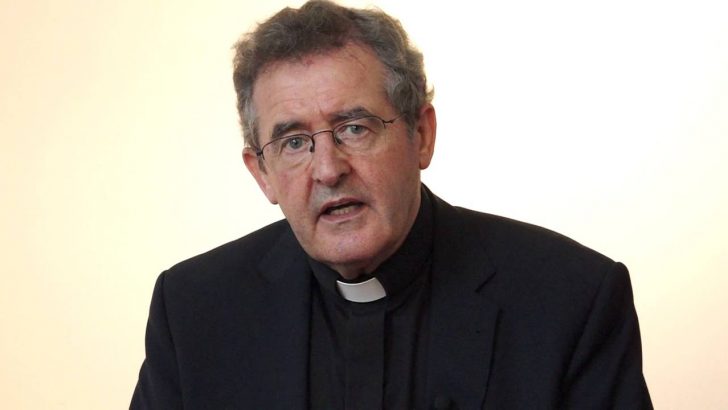Bishop William Crean, Bishop of Cloyne has issued an appeal to Catholic voters that when being canvassed over these days to ask prospective TDs to indicate clearly where they stand on assisted suicide/assisted death.
“Our population is aging. The cost of nursing care is increasingly difficult for families. Enormous pressure will be brought to bear on frail elderly and others diagnosed with terminal illness to succumb to a potentially new culture of death” the bishop said.
He added: “How we care for the weakest and most vulnerable goes to the core of our moral fibre and integrity as a society.
“Compassion must always be our first response in the face of pain. Our palliative care culture and organisation across the country are an extraordinary witness to compassionate care for all approaching life’s end.”
Bishop Doran outlines issues for Catholic voters
The Right to Life
The right to life is a fundamental human right and when life is taken away, all other rights are taken along with it. In 2018, the Oireachtas legalised abortion, with the assurance that it would be rare and safe. Over a five-year period, more than 30,000 babies have been aborted, the vast majority of them under 12 weeks and with no suggestion of any medical reason. Who even asks the mothers what is going on for them, emotionally, physically or economically?
Euthanasia
The Dáil recently voted to receive the report of the Oireachtas committee on assisted dying. This vote had no immediate effect, but it does give us some idea of the number of politicians in the last Dáil who would be prepared to consider legalising Euthanasia and Assisted Suicide. If this had been about passing legislation, there were enough ‘yes’ votes nationally to legalise assisted suicide and euthanasia, with all the same promises about it being safe and rare.
The availability of assisted suicide would further weaken respect for life in our society and put pressure on elderly and the sick people who are already vulnerable. It would also seriously undermine doctors and nurses whose professional commitment is to support life. Election candidates should be questioned on their past voting history on this matter and on their intentions for the future.
Housing
Housing is another fundamental human right and there has been a serious housing crisis in Ireland for many years. It was not caused by refugees or asylum seekers and any attempt to blame them for the situation is unfair. In a market which is dominated by the private sector, subsidies and grants only serve to increase prices, because the same number of people are looking to buy the same number of houses.
Government can no longer leave the provision of housing to developers who are in the market for profit. Public policy needs to focus on the building of far more houses which will be owned and managed by local authorities at rents which are realistic. It needs to be made clear to candidates that the time for promises is over. Families need homes, not hotels and office blocks.
Childcare
There seems to be no shortage of policies about the funding of childcare, which like so many things, is becoming more highly regulated and more expensive.
All the focus is on providing subsidies for parents whose children attend child-care facilities. Why would we not also consider subsidising parents of young children, at least those under school-going age, who would prefer to stay at home and look after their own children? Surely that would be a positive way for government to recognise the essential contribution that parents make in caring for their own children (cf. Art. 42 of the Irish Constitution). In the final analysis, the primary consideration should be given to what is good for children rather than to what might be good for the economy.
Rural Development and Policing
When it comes to petty crime and anti-social behaviour in our towns and villages, the visibility of An Garda Síochána is an important preventive measure. When phone calls are made, the response often seems to be that there is no car available.
I imagine this must be a source of frustration and concern for the Gardaí themselves. Most of them live
in our communities and, if they are not properly resourced, they themselves are also being placed at risk. In a healthy economy such as ours, one must question how public spending is prioritised.
Migrants and Refugees
Placing large numbers of refugees and asylum seekers, many of whom are traumatised by their experience of war, into remote places where there is no prospect of either work or integration, is of no real benefit to them. It clearly causes concern in communities where limited services are put under pressure.
There is no justification for violence or racism against refugees and asylum seekers. Candidates for election need to be reminded of the many promises that have been made about the re-development of publicly owned buildings to provide accommodation which is fit for human habitation, in places where there is public transport and the possibility for people to access work and education.


 Bishop William Crean of Cloyne.
Bishop William Crean of Cloyne. 